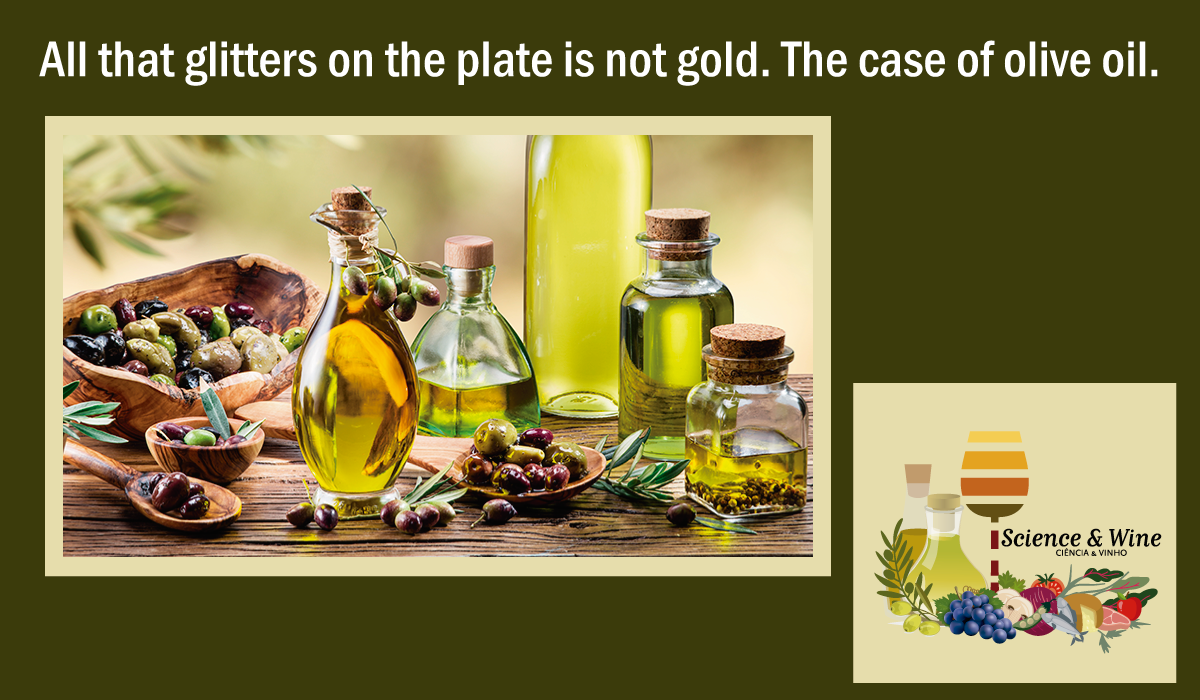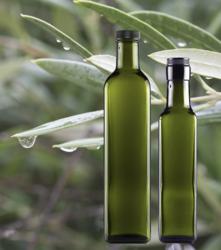By Maria Lisa Clodoveo and Dimitrios Boskou
Olive oil is an integral component of the dietary pattern known as Mediterranean Diet. In the past decades the oil has been the subject of intensive research due to the growing interest in its health benefits. Today, it is almost universally recognized that some of the constituents of the oil, both triacyl-glycerol’s and non-glyceride components, are related to lower levels of inflammation and a lower rate of diseases, such as certain types of cancer, diabetes, and cardiovascular heart disease They may also have a beneficial effect on the delay of cognitive decline.
The fame of olive oil as a great “healer” is spreading but this may create a false myth among consumers who believe that the botanical origin of the fruit is enough to bring healthy molecules into the bottle. In fact, a moderate percentage of products claimed as virgin oils and especially extra virgin olive oils are effectively good for health. Many products found on the shelf may be of poor quality. Others may become useless after purchase from the point of view of retarding the effects of the free radicals and related inflammatory phenomena. This may be due to poor storage and unacceptable domestic habits responsible of the loss of the favourable effects expected from antioxidant molecules.

How can one navigate in the ocean of products to recognize EVOOs (extra virgin olive oils) with an accepted action on health? Above all, how can one be sure that the quality of the product is adequately preserved so that it can be brought intact to the table? Fortunately, the strict legislation related to olive oil provides some “good cards” to guarantee quality. Provided consumers are informed and understand the nutritional and hedonistic value of the products and they are willing to pay in the right price.
To produce a healthy EVOO it is necessary to harvest undamaged fruits, using modern oil extraction systems and apply the most rigorous hygiene standards throughout the whole process. Only in this way, it will it be possible to obtain a product corresponding to the specifications with the desired level of phenols and other bio active compounds. It can be said that extra virgin olive oil is a “sincere” food that tells in a way its story via its gustatory and olfactory notes. This, of course, demands some training of the consumer. This training will help him understand and evaluate the complex bouquet of fragrant and herbaceous notes and especially the desirable bitter and spicy tastes due to the phenolic molecules. All these characteristics usually coincide with the application of good production practices. The consumer must know that all extra virgin olive oils should have two characteristics, a certain “fruitiness” and no defects such as rancid, sour, winey, musty and others.
These characteristics can be detected by a consumer and they are officially checked and measured by authorized trained panels. This control is important for the consumers and all the shareholders in the whole olive oil business.
Once one has purchased extra virgin olive oil, he must learn how to defend the product from all domestic threats that could turn it into a trivial mass of fat, only a source of calories. An oil with an inferior flavour which can damage a good recipe. Therefore, the selection of proper storage conditions, including packaging, can be of great importance.
The ideal package size depends on our usage habits. The European Food Safety Agency (EFSA) recommends a minimum consumption of 20 grams per day to benefit from the health effects of polyphenols contained in extra virgin olive oil. Considering this the ideal package is the one that ends within 10 days. Avoid, as much as possible, exposure to the air each time you open the bottle. In this way the adverse effect of oxygen, the second enemy of the oil, in the empty space of the bottle is not excessive.
The third enemy of EVO oil is high temperature. Carefully choose the cooler place in the kitchen for this precious product, packaged in a bottle or any other container, away from an oven, a stove, and the sink, where hot water often flows.

Mediterranean Diet. Not just a recipe. The traditional Mediterranean diet refers to a dietary pattern found in olive growing areas of the Mediterranean region. Its main characteristic is the consumption of virgin olive oil, vegetables, fresh fruits, grains, pasta, bread, olives, pulses, nuts, and seeds. Moderate amounts of fish, poultry, dairy products, and eggs are consumed with small amounts of red meat and wine. The healthy pattern has been represented by various pyramids indicating graphically the foods to be consumed daily or weekly. The last 2010 version suggests olive oil consumption with every main meal but proposes also physical activity and culinary activities. It incorporates also cultural elements such as moderation, conviviality, seasonality, and eco-friendliness. This new revised modern Mediterranean pattern takes into consideration contemporary lifestyles and environmental constraints and is compatible with the development of a sustainable diet model for present and future generations.

Maria Lisa Clodoveo 
Dimitrios Boskou 

Maria Lisa Clodoveo is Associate Professor in Food Science and Technology at the Interdisciplinary Department of Medicine, University of Bari, Italy. She is the Director of the Short Master in “Health claims of Extra Virgin Olive Oil as Marketing Tool to Improve the Company’s Competitiveness”, and Director of the Short Master in “The Olive Oil Sensory Science and the Culinary Art”. She is a member of the “Accademia dei Georgofili” and of “Accademia Nazionale dell’Olivo e dell’Olio”. She is the founder of the “Research Centre for Olive Growing and Olive Oil Industry” at the University of Bari. She was the winner of the award ”Antico Fattore” (2016) assigned by ”Accademia dei Georgofili” for an innovative approach to virgin olive oil technologies, the award for ”Innovation and applicability” at the International Congress GENP 2016 for the results obtained in the application of ultrasound technology to the virgin olive oil process, and the “The Senior Scientist Award” at the International Congress GENP 2018 in recognition of her research achievements. She was awarded with the Menvra Award 2018 as woman of oil. She is a Principal Investigator of the European Project Horizon 2020—Fast Track for Innovation—Olive Sound. She is the inventor of two patents and the author of more than 100 articles and book chapters in the olive oil sector.
Dimitrios Boskou received his diploma and doctor’s degree in chemistry from the School of Chemistry, Aristotle University of Thessaloniki, Hellas; his Ph.D.in Food Scence from the University of London; and a Doctor of Science degree from the School of Chemistry, Aristotle University. He served as an assistant, lecturer, assistant professor, associate professor, professor, and head of the Laboratory of Food Chemistry and Technology, School of Chemistry, Aristotle University (1970–2006). In the period from 1986 to 1998 he was a member of the IUPAC Oils, Fats, and Derivatives Commission. He served as a member of the Supreme Chemical Council, Athens (1995–2005), and a member of the Scientific Committee for Food of the European Commission and an expert of the Food Additives Panel of the European Food Safety Authority (1995–2012). Dr. Boskou has published over 100 papers and reviews. He is the editor of 8 books and the author of 30 chapters in books related to the major and minor constituents of fats, natural antioxidants, olive oil, and heated fats, published in the United States, the United Kingdom, France, India, Croatia and Switzerland. He is also a contributor to international scientific encyclopedias and the Lexicon of Lipid Nutrition, a joint IUPAC/IUNS work



[…] Read all in Science & Wine blog: https://www.ciencia-e-vinho.com/2020/12/09/all-that-glitters-on-the-plate-is-not-gold-the-case-of-ol… […]